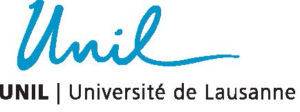Within the five academic partners, the following research groups are benefiting from LéXPLORE platform:

Limnology Center: Responsible for the management of LéXPLORE and promote scientific projects
Physics of Aquatic Systems Laboratory: Key user with a large project on primary production
Distributed Intelligent Systems and Algorithms Laboratory: Test and develop an autonomous underwater vehicle
Central Environmental Laboratory: Investigate the pollution from microplastics
Laboratory of Geographic Information Systems: Analyse the spatial preferences of bacteria
Environmental Chemistry Laboratory: Investigate the communities of bacteria and try to forecast toxic cyanobacteria
Laboratory of Environmental Toxicology: Implement a novel and remotely controlled biosensor for water toxicity
Ecological Engineering Laboratory: Investigate current flows in the atmospheric boundary layer
Wind and Renewable Energy Laboratory: Use a LiDAR for atmospheric measurements from the platform
Microsystems Laboratory 4: Develop the micro engineering part for a biosensor for water toxicity
Galatea Laboratory: Develop a biophotonics chip to detect microalgae populations in situ
Ecotox Center: Test the effects of suspended matter on Chironomus
Laboratory of Sustainable and Catalytic Processing: Study reaction engineering at fluid solid interface
Environmental Remote Sensing Laboratory: Characterize the precipitation in Lausanne area
Laboratory of Biological Network Characterization: Test an innovative device to measure DNA on the field
Environmental Microbiology Laboratory: Focus on microbiology with numerous projects dedicated to geomicrobiology
Department Environmental Toxicology: Implement a novel and remotely controlled biosensor for water toxicity
Phytoplankton Ecology Group: Analyse the microalgae populations detected by a biophotonics chip
Department Aquatic Ecology: Investigate the colonisation of new invasive mussels
Remote Sensing Group: Detect automatically whiting events using satellite images
Sensor and Analytics Group: Develop a prototype microtitrator for alkalinity profiling
Aquatic Physics Group: Study physical processes, create a webportal for collected data
Department Environmental Chemistry : Investigate the toxins released by cyanobacteria
Sedimentology: Establish radiocarbon inventories of dissolved and particulate carbon phases

Past, Present and Future of Alpine Lakes: Key user with a large project about carbon cycling
Stable Isotope Geochemistry: Investigate mixing pattern from the Rhône River using water isotopes
GAIA lab: Characterize the precipitation in Lausanne area
Forensic Science: Quantify the contamination of pollutants

Microbial Ecology Group: Investigate phytoplankton communities at high-resolution
Limnology and Environmental Geology: Analyse sediment cores to reconstruct the microplastic pollution in the past
The Bakker Group: Test various new technologies to measure the metal with new in situ sensors
UMR CARRTEL: Investigate the behaviour of fish populations below the platform
Other Institutions:
Biogeoscience Group from ETH Zürich: Analyse diols to reconstruct paleo-hydrological conditions
Chelsea Technologies: Test new technologies in situ to measure the primary production
Research Group – Marine biogeochemistry – Centre Southampton: Study role in global carbon, nutrient and other chemical cycles


